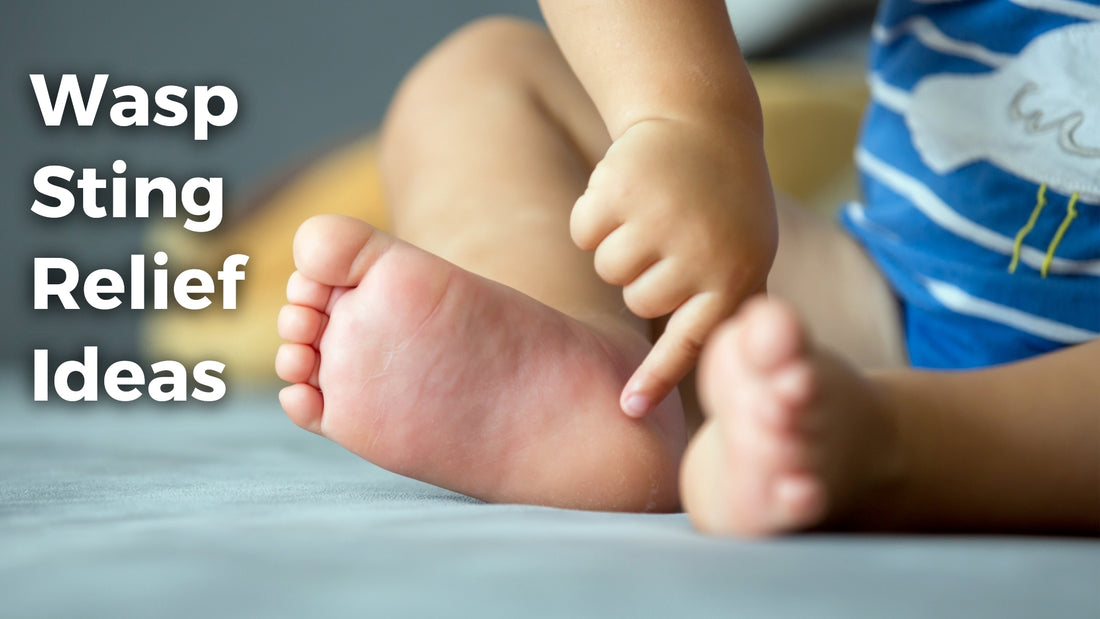
Natural Remedies for Wasp Stings: Your Ultimate Guide
Share
Natural Remedies for Wasp Stings: Your Ultimate Guide
Hello Nature Enthusiasts!
Summer is a wonderful time for outdoor activities, but it also brings the risk of wasp stings. While these stings are usually more of a painful nuisance than a serious health threat, they can cause significant discomfort. At Nevilife, we believe in the power of natural remedies to soothe and heal. In this blog post, we'll explore effective natural remedies for wasp stings and share some tips on how to prevent stings in the first place.

Understanding Wasp Stings
When a wasp stings, it injects venom into your skin, causing pain, swelling, and redness. For most people, these symptoms subside within a few hours to a couple of days. However, for those with allergies to wasp venom, stings can be more serious and require medical attention.
Immediate Steps to Take After a Wasp Sting
-
Clean the Area:
- Gently wash the sting site with soap and water to remove any venom and reduce the risk of infection.
-
Apply Ice:
- Place an ice pack or a cloth-wrapped ice cube on the sting for 10-15 minutes to reduce swelling and numb the pain.
-
Elevate the Area:
- If the sting is on an arm or leg, keep it elevated to help reduce swelling.

Top Natural Remedies for Wasp Stings
1. Baking Soda Paste
- How to Use: Mix a small amount of baking soda with water to form a thick paste. Apply this paste to the sting and let it sit for 10-15 minutes before rinsing off.
- Benefits: Baking soda helps neutralize the wasp venom, reducing pain and swelling.
2. Apple Cider Vinegar
- How to Use: Soak a cotton ball in apple cider vinegar and apply it to the sting for a few minutes.
- Benefits: The acidity of apple cider vinegar can help neutralize the venom and reduce inflammation.
3. Honey
- How to Use: Apply a small amount of honey directly to the sting and cover it with a bandage. Leave it on for an hour.
- Benefits: Honey has natural antibacterial properties and can help reduce swelling and prevent infection.
4. Aloe Vera
- How to Use: Apply fresh aloe vera gel directly from the plant or use store-bought pure aloe vera gel on the sting.
- Benefits: Aloe vera has anti-inflammatory properties and provides a cooling effect that can soothe the skin.
5. Essential Oils (Lavender or Tea Tree)
- How to Use: Dilute a few drops of lavender or tea tree essential oil with a carrier oil (such as coconut oil) and apply it to the sting.
- Benefits: Both oils have antiseptic and anti-inflammatory properties that can help alleviate pain and reduce swelling.

Preventing Wasp Stings
-
Avoid Strong Scents:
- Wasps are attracted to strong fragrances. Avoid wearing heavily scented lotions, perfumes, or hair products when spending time outdoors.
-
Wear Protective Clothing:
- When in areas where wasps are common, wear long sleeves, pants, and closed-toe shoes to minimize exposed skin.
-
Keep Food Covered:
- Wasps are attracted to food and sugary drinks. Keep your food and beverages covered when eating outside.
-
Stay Calm:
- If a wasp approaches, try to remain calm and avoid swatting at it. Sudden movements can provoke the wasp to sting.
-
Seal Trash Bins:
- Ensure that outdoor trash bins are tightly sealed to prevent wasps from being attracted to food waste.
When to Seek Medical Attention
While natural remedies are effective for most wasp stings, it's essential to seek medical attention if you experience severe symptoms such as difficulty breathing, swelling of the face or throat, or a rapid heartbeat. These could be signs of an allergic reaction, which requires immediate treatment.
Conclusion
Wasp stings can be painful, but with the right natural remedies and preventive measures, you can manage the symptoms and enjoy a sting-free summer. At Nevilife, we are committed to providing you with natural solutions to everyday challenges. Embrace the healing power of nature and stay safe this summer!
Stay Healthy and Sting-Free, Nevilife